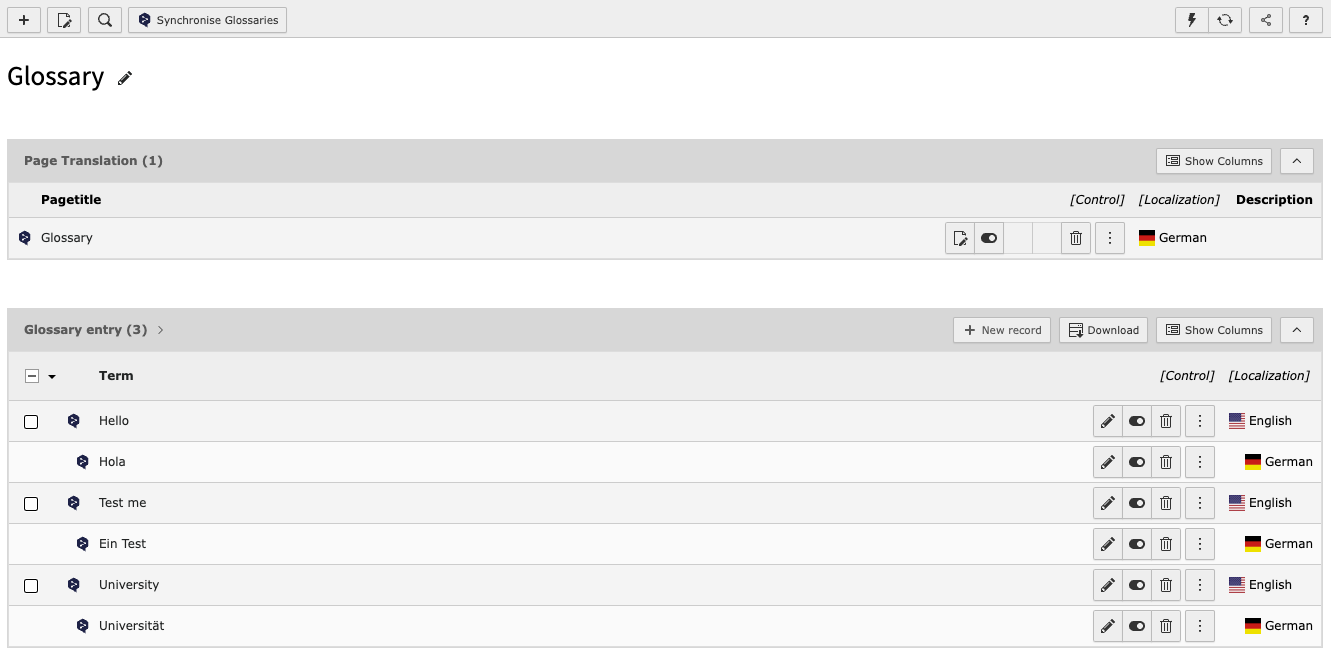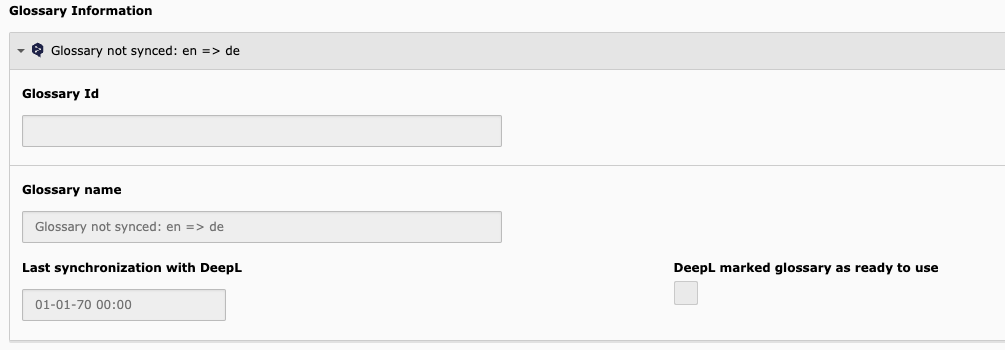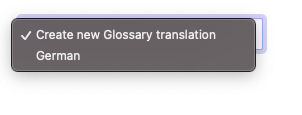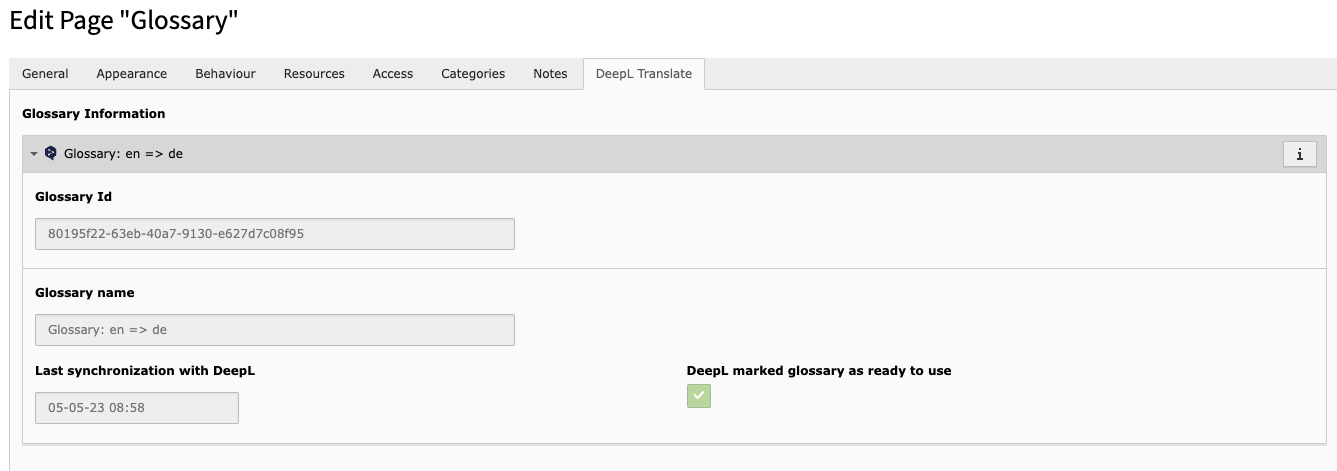Glossaries
You can define glossaries for your translations. Each glossary has a name, a source language and a target language. The name is made up of the page title and the target and source languages.

On pages with Doktype 254 (Folder) and "Use Container" set to "DeepL Glossary", a synchronise button appears for easy synchronisation of the glossary terms listed in this page.
Possible glossary combinations in multiple language translation modes are built on the fly, so your glossary can be used from any target to source, except the default system language.
Each glossary shows you the current sync status to the DeepL API in the page settings.

Adding terms is done through the list module.

To generate a glossary translation, simply translate the page into the required glossary language using the TYPO3 translation dropdown. A custom translation dropdown will be displayed, which will only accept languages in which glossary entries can be created.


After that you can make translations with the Translate to button. As the glossary entries are made for not using DeepL standard wording, the ability of translating entries by DeepL is disabled.

You can retrieve the current sync information of this glossary to the API in the page settings, tab DeepL Translate.
Note
Current NO Automatic sync is performed on save. Save and trigger sync manually.
In each glossary directory, a button is enabled to synchronise that glossary.
After sync the tab DeepL Translate should look like this:

